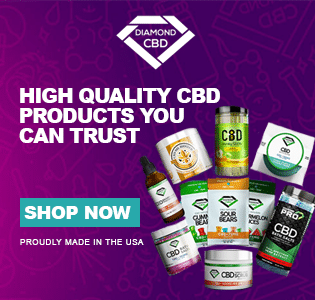Selling CBD gummies seems like a lucrative opportunity, offering the promise of booming sales in the ever-growing wellness market. However, before you dive headfirst into this trend, consider the potential risks that come with it. While the CBD industry is on the rise, it also presents a complex web of legal and regulatory challenges that could pose significant threats to your business.
Key Takeaways
- The legal status and regulations surrounding CBD gummies are complex and uncertain, creating challenges for sellers.
- Understanding and complying with state-specific laws and regulations is crucial to avoid legal issues and maintain product quality.
- Selling CBD gummies requires compliance with FDA restrictions, including clear labeling and meeting quality and safety standards.
- Marketing and advertising CBD gummies involve navigating complex regulations, such as platform-specific policies and influencer collaborations.
Ambiguous Legal Status
If you're considering selling CBD gummies, be aware that their ambiguous legal status can present potential risks. The unclear legality of CBD products, including gummies, has created a complex and uncertain regulatory environment. While the 2018 Farm Bill legalized hemp-derived products containing less than 0.3% THC at the federal level, individual states have varying regulations regarding the sale and distribution of CBD-infused edibles. This lack of uniformity in laws can lead to potential consequences for sellers, as they may inadvertently violate state regulations, resulting in legal penalties or business disruptions.
Navigating the uncertain legal landscape of CBD gummies requires thorough research and compliance with both federal and state regulations. Failing to do so could expose you to the risk of facing enforcement actions, such as fines or product seizures. Additionally, the ambiguous legal status of CBD gummies may impact your ability to secure business insurance or obtain financing, further complicating your operations.
To mitigate these risks, it's crucial to stay updated on the evolving regulatory framework surrounding CBD products and consult legal professionals with expertise in this area. Understanding the unclear legality and potential consequences associated with selling CBD gummies is essential for making informed business decisions and operating within the bounds of the law.
Inconsistent Regulations
Navigating the market for CBD gummies can be challenging due to the inconsistencies in regulations across different states, requiring careful attention to compliance and potential legal implications. One of the key areas of concern revolves around product labeling. Different states may have varying requirements for the information that must be included on CBD product labels, such as the ingredients, dosage, and disclaimers. Ensuring that your product labels meet the specific regulations of each state where you sell your CBD gummies is crucial to avoid potential fines or product recalls.
Another critical aspect affected by inconsistent regulations is quality control. States may have different standards for the manufacturing processes, testing procedures, and allowable levels of contaminants in CBD products. This can make it challenging to maintain consistent quality across different batches and ensure that your products meet the varying regulatory requirements. Failure to adhere to these quality control standards can not only result in legal repercussions but also damage the reputation of your brand.
To illustrate the variances in regulations, here's a comparison table of product labeling and quality control requirements in two different states:
| Regulations | State A | State B |
|---|---|---|
| Product Labeling | Specific THC content | General dosage guidelines |
| Quality Control | Mandatory third-party testing | In-house testing allowed |
Understanding and complying with the diverse regulations across different states is essential for anyone selling CBD gummies to avoid potential legal issues and maintain product quality.
FDA Restrictions
Amidst the complexities of selling CBD gummies, understanding and adhering to FDA restrictions is crucial for ensuring compliance and avoiding legal ramifications. The FDA has specific regulations in place to govern the production, labeling, and marketing of CBD products, including gummies. Failure to comply with these regulations can result in severe penalties, including product seizure and legal action. Here are some key FDA restrictions that you need to be aware of:
- Health concerns: The FDA is concerned about the potential health risks associated with CBD products, particularly the lack of comprehensive research on their long-term effects. Therefore, sellers must be cautious about making any unfounded health claims about their CBD gummies.
- Consumer confusion: The FDA requires clear and accurate labeling of CBD products to prevent consumer confusion. This includes providing information about the CBD content, proper usage instructions, and potential side effects.
- Quality and safety standards: CBD gummies must meet certain quality and safety standards set by the FDA to ensure that they are free from contaminants and consistently meet potency requirements.
- Prohibited ingredients: The FDA prohibits the use of certain ingredients in CBD products, and sellers must ensure that their gummies do not contain any substances that are deemed unsafe or illegal.
State-Specific Laws
When selling CBD gummies, it is essential to be aware of the various state-specific laws that govern the production, distribution, and sale of these products. State licensing requirements for CBD products can vary significantly, impacting who can produce and sell these items. Some states may require specific licenses for the production and distribution of CBD gummies, and failure to comply with these regulations can result in severe legal consequences. Additionally, retail distribution of CBD gummies is subject to state-specific laws, including restrictions on where and how these products can be sold. It's crucial to understand the retail distribution regulations in each state to ensure compliance and avoid potential legal issues. Some states may have limitations on the types of retailers that can sell CBD products, as well as requirements for product labeling and consumer education. Therefore, before selling CBD gummies, thoroughly research and understand the state-specific laws governing state licensing and retail distribution to operate within the legal boundaries and minimize the associated risks.
Marketing and Advertising Challenges
To effectively market and advertise CBD gummies, understanding the complex regulations and restrictions is crucial for compliance and successful promotion. The marketing and advertising of CBD products, including gummies, present unique challenges due to the evolving legal landscape and restrictions on health claims. Here are some key considerations to navigate these challenges effectively:
- Branding Strategies: Developing a compelling brand that resonates with your target audience while complying with regulations can be challenging. It's important to create a brand identity that communicates the benefits of CBD gummies without making unsubstantiated health claims.
- Target Audience: Identifying and understanding your target audience is essential for crafting effective marketing messages. Tailoring your marketing efforts to resonate with specific demographics while remaining compliant with advertising regulations is crucial.
- Social Media: Leveraging social media for CBD gummies marketing requires careful navigation of platform-specific advertising policies. Understanding the restrictions on paid promotions and finding creative ways to engage with your audience organically is key.
- Influencer Partnerships: Collaborating with influencers can be an effective marketing strategy, but it's important to ensure that influencers understand and comply with regulations when promoting CBD products.
Navigating these marketing and advertising challenges requires a thorough understanding of the legal landscape and a strategic approach to branding and promotion.
Frequently Asked Questions
Are There Any Potential Health Risks Associated With Consuming CBD Gummies?
Considering potential side effects, it's important to note that CBD gummies can lead to drowsiness and changes in appetite. To avoid these, stick to recommended dosages and consult a healthcare professional for guidance.
How Do CBD Gummies Differ From Other CBD Products, Such as Oils or Tinctures?
CBD gummies differ from oils or tinctures in flavor, dosage, consistency, and ingredients. They offer a tastier, more discreet way to consume CBD, with effects that may take longer to kick in but last longer.
Can CBD Gummies Interact With Other Medications or Supplements?
When taking CBD gummies, be cautious of potential interactions with other medications or supplements. CBD gummies can affect how your body processes certain drugs, leading to side effects or reduced effectiveness. Always consult your healthcare provider before using CBD gummies.
Are There Age Restrictions for Purchasing or Consuming CBD Gummies?
You should be aware that there are age restrictions and legal considerations when it comes to purchasing or consuming CBD gummies. It's important to understand the laws and regulations in your area before selling them.
How Can Consumers Ensure They Are Purchasing High-Quality CBD Gummies From Reputable Sources?
To ensure quality and safety when buying CBD gummies, research reputable sources and check for third-party lab testing. Understand the purchasing process, potential health risks, consumption differences, and interaction risks. Be aware of age restrictions.





